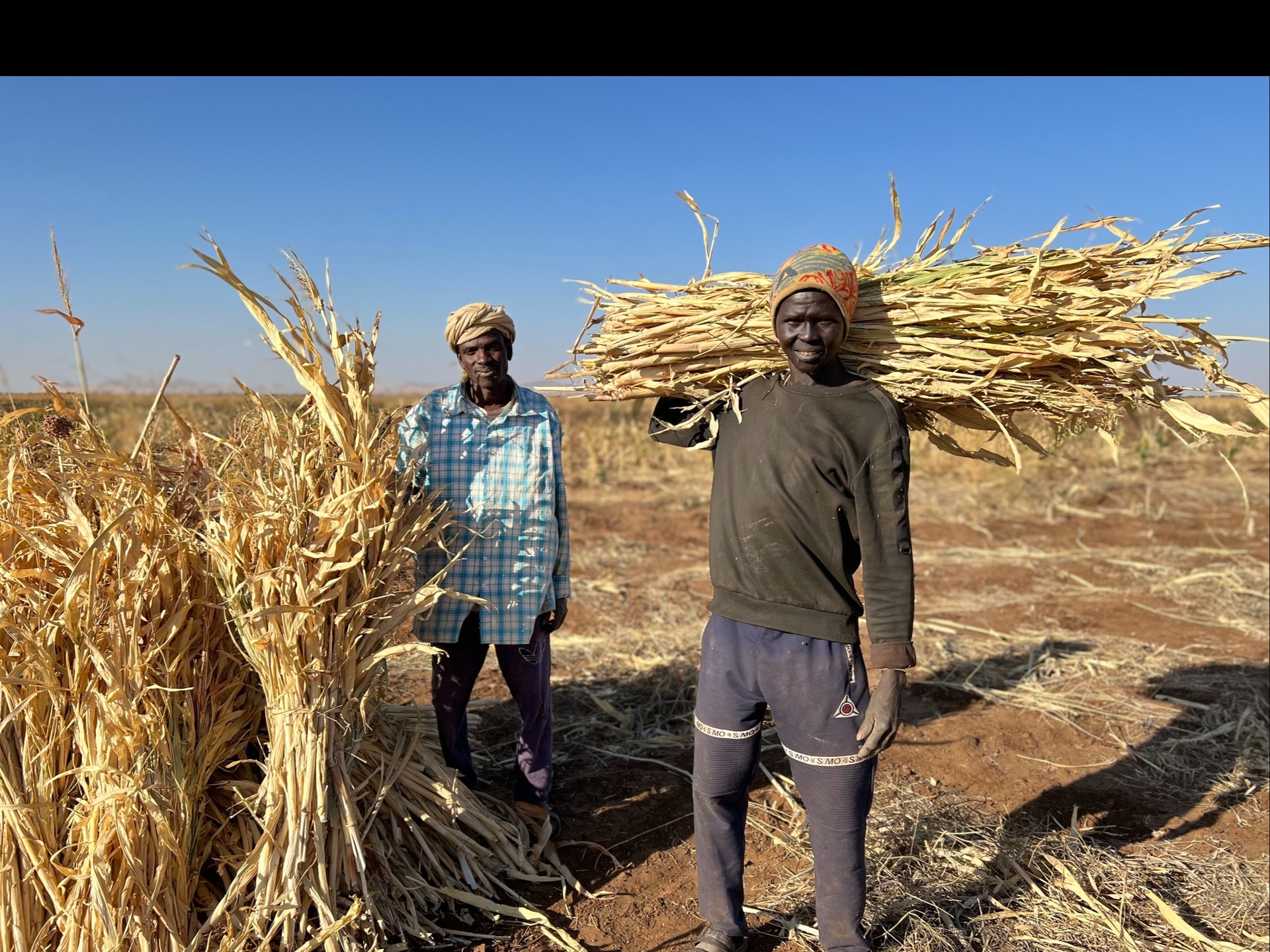June 15, 2025 | 04:05 GMT +7
June 15, 2025 | 04:05 GMT +7
Hotline: 0913.378.918
June 15, 2025 | 04:05 GMT +7
Hotline: 0913.378.918

Much of the support to most vulnerable farming and livestock herding households will be delivered using a combination of unconditional cash assistance and livelihood input packages combined with training.
The Food and Agriculture Organization of the United Nations (FAO) has launched an Emergency Livelihood Response Plan to address growing food insecurity in Sudan, providing communities with emergency seeds and livestock treatment kits, as well as veterinary and fisheries support and equipment.
The Plan builds on FAO’s work to address extreme vulnerabilities triggered by the ongoing conflict on small-scale farming, herding and fishing communities. It complements FAO’s recently completed emergency seed distribution campaign. That initiative helped farmers maximize cereal production, avoid depletion of assets and promote seed diversification. The expected production will contribute to meet the cereal needs of at least 13 million and up to 19 million people for the upcoming 2023 harvest.
“Millions of people across the Sudan are facing a battle for survival as the food security crisis worsens”, said Hongjie Yang, FAO Representative in the Sudan. “This emergency response plan aims to provide farming, herding and fishing families with the basics they need to keep production going and feed themselves and their communities.”
Seeds, animals and livestock vaccination campaigns
Under the plan, to support a total of 10.1 million people, households most in need will receive certified quality seeds – cowpea, groundnut, millet, okra and sorghum for the 2024 summer season, and chickpea, cucumber, pigeon pea, tomato and watermelon for the 2023 winter season. They will also receive training to adopt good agricultural practices, such as better handling of farm commodities after harvest.
Vulnerable people who have lost productive assets will be supported through the restocking of animals. This will result in immediate improvements to food security and nutrition, enabling herders to produce 4 to5 litres of milk/day.
Crucially, in a context of conflict, FAO’s plan will support the implementation of mass vaccination campaigns to protect 6 million sheep, goats and cattle against the most prevalent and devastating diseases, including peste des petits ruminants, sheep and goat pox and foot-and-mouth disease.
FAO also aims to assist 50 000 people (10 000 fishing households) with fishing inputs (such as fishing boats and gear) and related training, to ensure steady access to high-protein, quality foods and maintain functional local economies.
Much of the support to most vulnerable farming and livestock herding households will be delivered using a combination of unconditional cash assistance and livelihood input packages (seeds, tools, etc.) combined with training. This will help address the fact that during the dry season, spanning from November to May, farmers practicing rainfed agriculture face a “hunger gap”, while herding communities struggle with water scarcity, diminishing pastures and weakened animal health, leading to economic strain and a decrease in food consumption patterns.
Funding needs for implementation
In order to implement the plan over the next 12 months and reach the targeted farmers, herders and fishers in 17 of the Sudan’s most food-insecure states, FAO will require $123 million.
FAO last month warned about the severity of the escalating food crisis in the Sudan. According to the latest Integrated Food Security Phase (IPC) projections, over 20.3 million people, representing more than 42 percent of the population in the country, are experiencing high levels of acute food insecurity (IPC Phase 3 or above) between July and September 2023, nearly double the figure from May 2022. Nearly 14 million people are facing Crisis (IPC Phase 3) and nearly 6.3 million people facing Emergency (IPC Phase 4) levels of acute hunger. More information on the IPC hunger classification system can be found here.
The ongoing violence has resulted in the displacement of over 3.8 million people across the country and forced more than 960 000 individuals to seek refuge in neighboring countries.
(FAO.org)

(VAN) Extensive licensing requirements raise concerns about intellectual property theft.

(VAN) As of Friday, a salmonella outbreak linked to a California egg producer had sickened at least 79 people. Of the infected people, 21 hospitalizations were reported, U.S. health officials said.

(VAN) With the war ongoing, many Ukrainian farmers and rural farming families face limited access to their land due to mines and lack the financial resources to purchase needed agricultural inputs.

(VAN) Vikas Rambal has quietly built a $5 billion business empire in manufacturing, property and solar, and catapulted onto the Rich List.

(VAN) Available cropland now at less than five percent, according to latest geospatial assessment from FAO and UNOSAT.

(VAN) Alt Carbon has raised $12 million in a seed round as it plans to scale its carbon dioxide removal work in the South Asian nation.

(VAN) Attempts to bring down the price of the Japanese staple have had little effect amid a cost-of-living crisis.